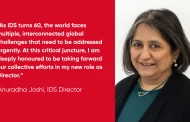It doesn’t appear to have enjoyed great hailing in Nigeria but it is a truly positive development in terms of nationalist enactment of Nigeria. The development under reference is the News Agency of Nigeria, (NAN) re-opening its Johannesburg, Addis Ababa and Abidjan. Along with this is the news that the New York Bureau has remained function. It means the bureau survived a plan to close it for whatever reason(s). NAN losing its office within the UN Building was a strategic sentiment against the closure at the time. It was about the only ‘Third World’ country with a national media office in the building at the time, within shouting distance from the CNN office. NAN in New York then (2000 – 2002) and elsewhere was absolutely a very helpful foreign policy tool. Jerome Hule was NAN Correspondent in New York and every engagement of the Nigerian foreign affairs minister in the city was well situated.

Pitch perfect: one in the service of the other!
Following intense pressure on Chief Obasanjo who was the president at the time by many well located individuals, including Prof Ibrahim whose own student at ABU, Zaria was the Bureau Chief in New York at the time, a 6-month delay was reportedly approved. As usual, it petered out of the public square subsequently, (that is if it was ever in the public sphere) and except those closely involved in the business of national power projection, not many appear to know what happened eventually.
Re-opening the bureaus in Johannesburg, Addis Ababa and Abidjan and keeping the New York Bureau strongly suggests that the heads of NAN have read or are reading Anthony Smith’s Geopolitics of Information. It is an old book now (published 1980) but few would say it has been surpassed in terms of understanding what became known as the ‘CNN Effect’. ‘CNN Effect’ has been pushed out of centrality in media theory to only where God knows but nobody can say there is no ‘CNN Effect’ in foreign policy. There is but the theory probably needs to insert the intervening variables at work between a news item on CNN, the meaning-making process and the meaning – action nexus. Some scholar somewhere might already be working on that.
Intervention fears that some critics might say that re-opening the bureaus has nothing to do with bookishness but that is if there can be a distinction between what is academic and what is practical. The assumption, therefore, is that no correspondents of NAN – whether s/he is a PhD holder or primary school leaver – starts work there without reading Anthony Smith and Bolaji Akinyemi’s “The British Press and the Nigerian Civil War”. The typical correspondent of NAN, on whichever beat s/he covers must be conversant with those texts or run the risk of thinking that his or her job is just to paint Nigeria good, the sort of problem that undermines the potentials of NTA and FRCN as national broadcasters. The job of NAN, NTA, Voice of Nigeria and so on is not to paint Nigeria good but to frame Nigeria, to sell a narrative of Nigeria. It may be true that it is not the job of journalists on state run media platforms or anywhere else to frame Nigeria. True, that job belongs to intellectuals of statecraft spread across the universities, the intelligence services, the think tanks and the military but how can journalists operationalize a framework they do not understand? So, they must also internalize the notion that they are co-producers of nation enacting frames. And this is beyond a particular regime in power and whether a particular journalist supports this or that regime.
Intervention therefore thinks that it is, perhaps, time the Nigerian Institute of International Affairs, (NIIA), NAN, VON, NTA and FRCN bond together more tightly than before. In the world ahead, voice and the national image-schema might be more important determinant of location in global power than industrial capacity. A nation can be industrialised and yet be passed over when a key issue is on the table, depending on the mystique or lack of it around it.
Flowing from the foregoing, NAN might have offered Nigeria a great Xmas gift with its fuller African presence, PROVIDED its peopling of the bureaus is on considerations beyond conventional, ‘he said, he said’ journalism.




























